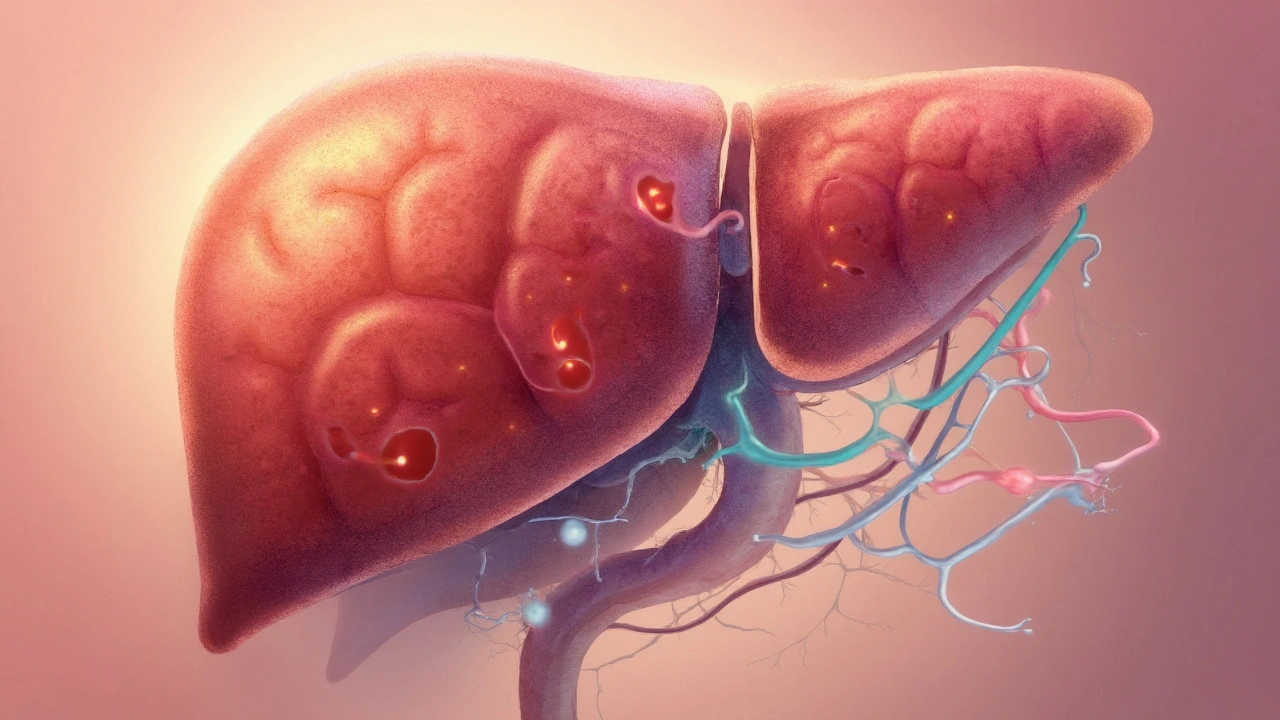Hepatic Encephalopathy – What It Is and How to Handle It
When the liver isn’t working right, toxins can build up and affect the brain. This condition is called hepatic encephalopathy (HE). It’s common in people with cirrhosis or severe liver disease. Knowing the basics helps you catch it early and keep it from getting worse.
HE happens because the liver can’t filter out ammonia and other waste products. Those chemicals travel to the brain and change how nerve cells fire. The result is a range of mental changes that can be mild or life‑threatening. The good news is that many cases improve with the right steps.
Common Signs You Shouldn't Ignore
Early HE often feels like you’re a bit off‑track. You might notice mild confusion, trouble concentrating, or forgetting simple things. Your sleep pattern can get messed up – you may feel sleepy during the day and restless at night. Some people describe a “foggy” feeling, like their thoughts are moving through a haze.
As the condition progresses, symptoms become more obvious. You could see personality changes, irritability, or even mood swings. A classic sign is ahand‑flap tremor called asterixis – when you hold your arms out, the wrists wobble. In severe cases, people can become unresponsive or slip into a coma. If any of these appear, get medical help fast.
Treatments and Everyday Tips
Doctors usually start with medicines that lower ammonia. Lactulose is a common one; it pulls ammonia into the gut so it can be eliminated. Sometimes antibiotics like rifaximin are added to reduce the bacteria that make ammonia. These drugs work together to bring the brain back to normal.
Diet also matters a lot. Reducing protein intake can help, but you don’t want to cut it out completely – talk to your nutritionist for a balanced plan. Avoid alcohol and any drugs that stress the liver. Staying hydrated and eating regular, small meals keeps the gut working smoothly.
Regular check‑ups are key. Your doctor will monitor blood ammonia levels and liver function tests. If you notice a flare‑up, they may adjust your medication dose. Keeping a symptom diary – noting when confusion starts, what you ate, and any new meds – makes it easier to spot patterns.
There are other articles on our site that can give you more context, like the guide on living with chronic hepatitis B and tips for managing liver health. Reading them can give you a broader view of how liver disease and HE connect.
Bottom line: HE is serious but manageable. Spot the early signs, follow the treatment plan, and make simple lifestyle changes. Talk to your doctor as soon as something feels off, and you’ll have the best chance to keep your brain sharp despite liver challenges.

